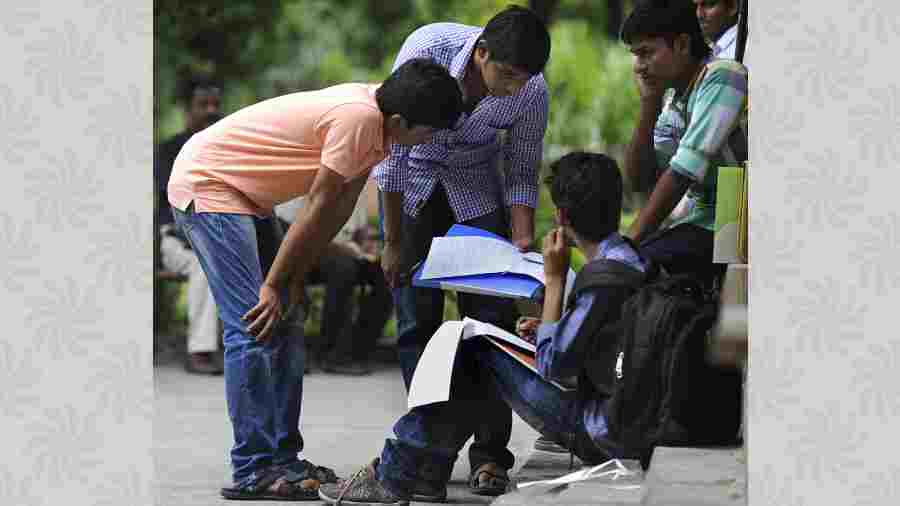A common test for admission to undergraduate courses has been on the cards as part of the New Education Policy (NEP) 2020 reforms. The test is meant to be student-friendly and create a level playing field for students from different boards and backgrounds. But that has not been the case for the current batch of students.
For the first time, Class XII students are facing two board exams in a single year — one in December and another in May. “In the middle of all this, CUET was announced. The test could have been scheduled for next year with better communication and coordination,” says Sudha Acharya, principal, ITL Public School, New Delhi.
Board exams have always been a critical aspect of a student’s life, but now they will have little to do with university admissions. And that is quite a drastic step. Educationists believe that the link between school and college will be lost. “A multiple choice question or MCQ test might work for physics, chemistry and maths to some extent, but how will you assess a child on the social sciences based solely on MCQ? How would it assess a student’s writing skills, analytical ability and comprehension — everything is compromised there,” says Acharya.
The United Grants Commission or UGC introduced this reform towards the end of March, less than two months before the final board exams, creating chaos and panic among students and parents.
Sonali Karthik, student of an ICSE school in Bangalore, says, “Our board exams have started. When will we prepare for CUET? It’s quite confusing, and I am not sure what to focus on.”
Professor Krishna Kumar, former director of NCERT, says he does not see the point of such a test. “CUET encroaches on an institution’s right and duty to select the students it wants to work with. Every institution is located somewhere and it has a responsibility towards people who grow up in that location. This new test will also encourage the coaching industry, which has already led to so much trouble for engineering, medical and other entrance tests.” Kumar also agreed that it would be difficult for students to take on this new test this year just after the board exams. “Nobody recognises such traumatic experiences of the young. They are just told to cope with it,” he adds.
The CUET is based on NCERT textbooks, which means that CBSE students would be familiar with the syllabus. But students from other boards — the different state boards and ISC — will have to prepare separately for it. Nikhil Agarwal, a Class XII student of Matri-kiran High School, an ISC school in Gurgaon, says, “Our board exams end on June 8. I wish we had known this at the beginning of the year so that we could have planned better for it. But overall, I think it’s a good thing considering last year the cut-offs for some of the courses went up to 100 per cent; keeping that in mind, it’s a good thing.”
So why was it introduced now? Devesh Nigam, the registrar of the University of Hyderabad, says, “For the last two years, the ministry of education has been trying to conduct a common entrance test, but it has not been possible due to the pandemic and certain other reasons. This year, they were able to do it.” Nigam also said that they would only be conducting the test for this year; from next year admissions might also be centralised.
He adds, “This test will evolve as we move forward, but it is sure to be useful for students. They don’t have to write different exams for BHU, DU, JNU, University of Hyderabad, Santiniketan — they can now write a single test.”
NEP 2020 emphasised holistic education and development. Consequently, the admission process for such a system must also reflect this philosophy. Many schools had already started shifting from content to competency-based learning, creative expression, comprehension, developing 21st-century skills and a multimodal assessment system in line with the New Education Policy. But is basing college admissions on an MCQ test the answer? That’s the question one has to weigh in the long run.
BULLETIN BOARD
CUET (UG) – 2022 or Common University Entrance Test UG 2022 will provide a single window opportunity to undergraduate students for the academic session 2022-23
• It will be a subject-based, multiple choice test
• Online submission of applications from April 6 to May 6
• For now, the exam is scheduled to be held on the first and second week of July











